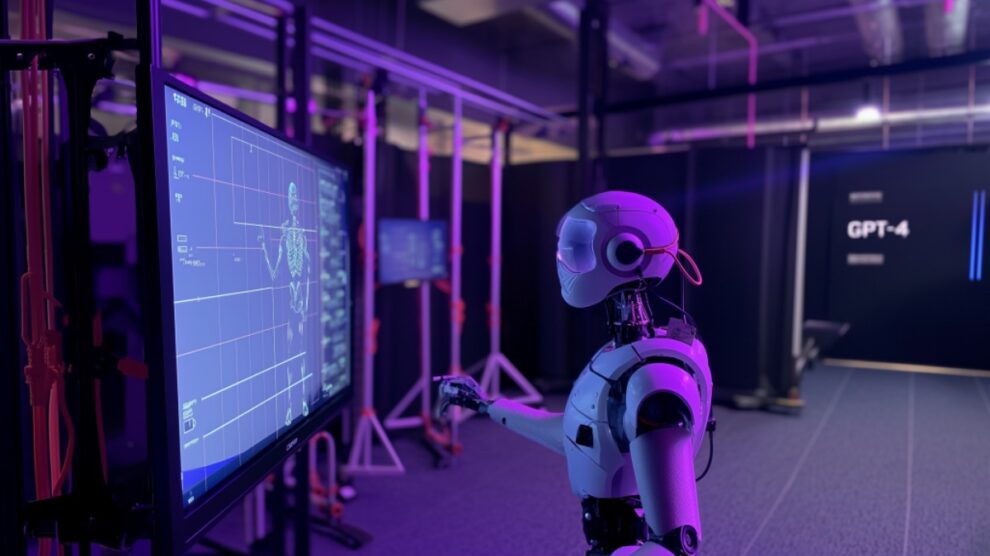The recent study on GPT-4’s performance in a Turing Test marks a significant milestone in the development of conversational AI. This analysis will explore the implications of this achievement, its limitations, and the broader questions it raises about the future of AI research and its impact on society.

Understanding the Turing Test Results
GPT-4’s Performance
Key points about the study:
- Participants struggled to distinguish between GPT-4 and a human in a five-minute conversation
- Suggests significant progress in AI’s ability to mimic human conversation patterns
- Represents a leap forward in natural language processing capabilities
Limitations of the Turing Test
Important considerations:
- Success in the Turing Test doesn’t equate to true understanding or sentience
- The test focuses on surface-level conversation rather than deep comprehension
- Short duration (five minutes) may not fully challenge the AI’s capabilities
Implications for AI Development
Advancements in Natural Language Processing
GPT-4’s performance indicates:
- Improved ability to generate contextually appropriate responses
- Enhanced understanding of nuanced language and conversation flow
- Potential for more sophisticated AI-driven communication tools
Challenges in Assessing AI Capabilities
This study highlights ongoing challenges:
- Need for more comprehensive tests of AI understanding
- Importance of distinguishing between mimicry and true comprehension
- Complexity in defining and measuring machine intelligence
Ethical Considerations in AI Development
Transparency and Disclosure
As AI becomes more human-like, ethical concerns include:
- Necessity of clear disclosure when interacting with AI systems
- Potential for deception or manipulation in AI-human interactions
- Implications for privacy and data use in training advanced AI models
Bias and Fairness
Important considerations for AI development:
- Ensuring diverse and representative training data
- Addressing potential biases in AI-generated responses
- Ethical use of AI in decision-making processes
Impact on Human Interaction
Changing Dynamics of Communication
Potential effects of widespread AI adoption:
- Blurring lines between human and AI-driven interactions
- Potential changes in how people perceive and value human conversation
- Implications for social skills and interpersonal relationships
AI in Professional and Personal Contexts
Areas of potential impact:
- Integration of AI assistants in customer service and healthcare
- Use of AI for personal companionship or therapy
- Ethical considerations in disclosing AI use in various contexts
Future Directions for AI Research
Beyond Mimicry: Developing True Understanding
Potential focus areas for AI development:
- Creating AI systems with deeper contextual understanding
- Developing methods to assess genuine AI comprehension
- Exploring the potential for AI creativity and original thought
Interdisciplinary Approaches
Incorporating insights from various fields:
- Cognitive science and neuroscience to inform AI development
- Philosophy and ethics to guide responsible AI advancement
- Linguistics and psychology to enhance natural language capabilities
Societal and Economic Implications
Workforce Transformation
Potential impacts of advanced conversational AI:
- Automation of certain communication-based jobs
- Creation of new roles focused on AI development and management
- Need for reskilling and adapting to an AI-augmented workplace
Education and Skill Development
Adapting to an AI-rich environment:
- Importance of developing uniquely human skills (creativity, empathy, critical thinking)
- Integrating AI literacy into educational curricula
- Preparing for a future where human-AI collaboration is commonplace
Challenges and Considerations for the Future
Regulatory and Legal Frameworks
Addressing the complexities of advanced AI:
- Developing appropriate regulations for AI use and development
- Addressing issues of liability and responsibility in AI-driven interactions
- Ensuring ethical use of AI across various sectors
Philosophical and Existential Questions
Deeper implications of AI advancement:
- Exploring the nature of consciousness and intelligence
- Considering the potential long-term impacts of superintelligent AI
- Balancing technological progress with human values and well-being
Conclusion: Navigating the AI-Driven Future
GPT-4’s performance in the Turing Test represents a significant milestone in AI development, highlighting the rapid advancements in natural language processing and conversational AI. While this achievement is impressive, it also underscores the need for more nuanced assessments of AI capabilities and a deeper understanding of the implications of these technologies.
As we move forward, it’s crucial to approach AI development with a balanced perspective, recognizing both its immense potential and the ethical challenges it presents. The ability of AI to engage in human-like conversation raises important questions about the nature of intelligence, the future of human-AI interaction, and the societal impacts of increasingly sophisticated AI systems.
The path ahead requires interdisciplinary collaboration, thoughtful policy-making, and ongoing public discourse to ensure that AI development aligns with human values and benefits society as a whole. As we continue to push the boundaries of what’s possible with AI, we must also remain mindful of the uniquely human qualities that define us and consider how best to integrate AI into our lives in ways that enhance rather than diminish our human experience.
Ultimately, the success of GPT-4 in the Turing Test is not an endpoint, but rather a stepping stone in the ongoing journey of AI research and development. It opens up new avenues for exploration and innovation while reminding us of the importance of addressing the ethical, social, and philosophical questions that arise as AI becomes an increasingly integral part of our world.










Add Comment